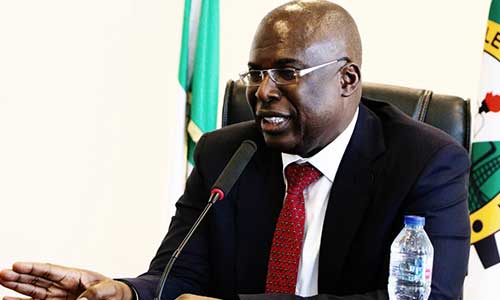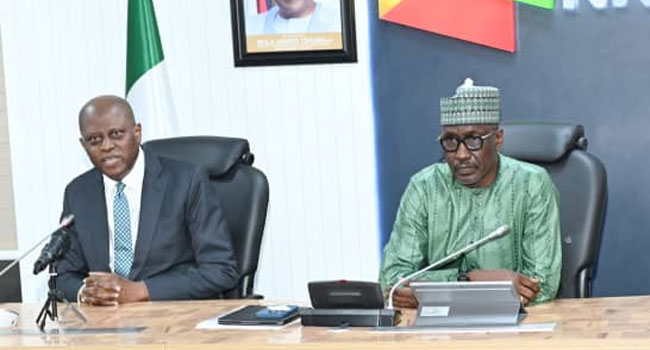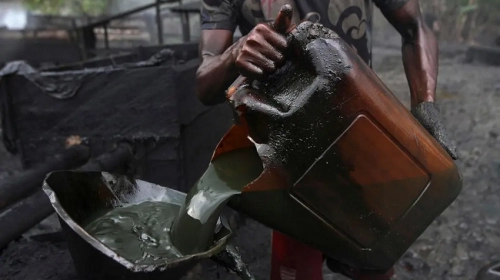Sylva: Future of Nigeria, Others’ Oil, Gas Industry Bright

The Minister of State for Petroleum Resources, Chief Timipre Sylva, yesterday has said the future of Africa’s oil and gas industry remains very bright despite the challenge posed by energy transition.
The minister stated this in Lagos at the 45th Nigeria Annual International Conference and Exhibition (NAICE) organised by the Society of Petroleum Engineers (SPE) Nigeria Council, with the theme: “Global Transition to Renewable and Sustainable Energy and the Future of Oil and Gas in Africa.”
However, also speaking at a four-day stakeholders’ consultation on domestic gas pricing organised by the Nigerian Midstream and Downstream Petroleum Regulatory Authority (NMDPRA) in Abuja, yesterday, Sylva while responding to questions stressed that the oil and gas sector was yet to be deregulated, noting that whatever increase in the pump price of fuel noticed recently was at the whims of marketers.
“Well, I can tell you authoritatively that we have not deregulated. The government is still subsidising and if there are increases in the price, it is not from the government, it is probably from the marketers,” he told participants.
He, however, assured that the authorities were doing their best to ensure that the queues noticed in recent weeks disappear as soon as possible.
Speaking further in Lagos, Sylva said Africa has a key role to play in securing a greener world where clean natural gas is used to power the continent’s economies sustainably, charging petroleum engineers and other industry stakeholders present at the event to not fail the continent
“I have no doubt that the future of Africa’s oil and gas industry is still bright, despite the global energy transition uptake. You are central to making this a reality. Don’t fail us,” Sylva said.
While observing that it was generally acknowledged that transition to low carbon energy sources would make the world a better living place with a cleaner climate, Sylva noted, however, that energy transition was better viewed as providing clean energy, and not as abandoning some energy sources.
He maintained that while current forecast indicated that the global cost of renewable energy was declining steadily, the reliability and sustainability of renewable energy supplies had been challenged by the recent energy crisis in Europe and the Americas, which has re-awakened new interest in fossil fuel supplies.
“We have seen coal plants being fired up in several European Countries recently, and a renewed interest in natural gas supply from Africa. There are also reports of increased oil and gas drilling operations in the USA with spontaneous permits being granted recently.
“Anticipated economic growth and rising global population, especially in Asia and Africa, will significantly push energy demand upward to a level that renewable energy sources only cannot meet by 2050.
“All these imply that the global energy mix will remain with us, amidst greater dominance by hydrocarbon energy sources, at least in the foreseeable future. It also indicates that energy transition will remain a gradual process, as against a rapid and radical shift as some have presented it,” the minister said.
For Africa, he noted that adaptive strategies for the energy transition should be adopted across the continent, adding that it meant that the different socio-economic, political and developmental peculiarities of individual nations should be taken into account in their transition plans.
Arguing that Africa was still bedeviled with chronic energy poverty in this modern age, with about 600 million people having no access to electricity, and about 900 million having no access to clean cooking fuel, he described the situation as unjustifiable.
He insisted that all available energy sources would be required to end the high level of energy poverty in Africa and achieve the United Nations Sustainable Development Goal (SDGs) of providing access to affordable, reliable, sustainable and modern energy for all.
According to Sylva, Africa’s approach towards the climate-change-net-zero-emission should be to optimise the use of the continent’s abundant gas resource as a transition fuel option.
Sylva further said, “Africa’s energy poverty would have to be addressed by responsibly developing and utilising Africa’s abundant natural resource – Fossil fuels, from where the renewable energy would be funded amidst a gradual energy transition.
“Nigeria, as the oil and gas industry leader in Africa, is committed to pursuing the energy transition to promote economic growth, and is gradually investing in renewable energies, primarily solar, to reduce carbon emissions, whilst continuing to exploit hydrocarbon resources, especially natural gas – recognised as the energy transition fuel for Nigeria.
“Nigeria has the most extensive gas resource in Africa with proven gas reserves of over 200 trillion cubic feet. It is envisaged that with the Petroleum Industry Act 2021 in full implementation across the broad spectrum of the oil and gas industry, Nigeria is well positioned for a reformed oil and gas industry that could sustain the local demand for natural gas and a high export income.
“On a relevant note, the campaign for reduced funding of fossil fuels explorations has led to a gale of divestment by the international oil companies in Nigeria. I strongly believe that this is an opportunity for oil and gas exploration in the country because Nigeria’s independent producers have developed capacity to fill-in the gap.”
The minister stated that it must be admitted that the risk of limited international financing of oil and gas projects could jeopardise Africa’s energy transition and roadmap to attaining net-zero.
“Hence, Africa will have to look inward and harness its resources, while accelerating technology development, to face the global energy transition onslaught.
“We need to develop cross-border infrastructure and expand regional energy market to guarantee long-term energy security,” he added.
In his presentation, the President of SPE International, Mr. Kamel Ben-Naceur, said an estimated five trillion cubic meters (5TCM) of natural gas had been discovered in some African countries including Namibia, Mauritania, Senegal and other basins.
The Tunisian-born president of SPE International also projected that Africa could supply another 30 billion cubic meters by 2030.
While describing that as good news for the continent, he said none of those 5TCM has achieved Final Investment Decision (FID).
“We estimate that about five trillion cubic meters of natural gas have been discovered in Africa including the latest ones in areas like Namibia, in areas like the MSGBC Basin: Mauritania, Senegal and so on basin.
“So, this is very good news for the continent. But those 5tcf have no FID yet. So, we have to go to the next stages. And it’s estimated that Africa could supply another 30 billion cubic meters by 2030,” Ben-Naceur stated.
In the sustainable future, Ben-Naceur predicted that oil and gas would remain a significant part of the energy mix for the next three or four decades, adding, “This is a fact that we all have to reckon and pass the message. Oil and gas industry will be very strong today, tomorrow and in the future.”
He said the world had experienced 30 per cent reduction in upstream investment between 2019 and 2020, worse than the 26 per cent drop in 2015 and 2016.
He said the situation had compounded over the last five to six years, with the global upstream investment declining by almost 50 per cent, adding that this has been compensated by the investment in other parts of energy.
However, upon the recovery of the industry, he said the world was hit by very high oil and gas prices especially in Asia where energy import costs went up by a factor of 15.
“We have never seen that on a year-to-year basis. And so, these are things that are leading to very strong inflationary pressures around the world and also creating very deep concerns about the sustainability and affordability of energy.
“So looking forward to next year, we see that the oil and gas demand will come back above the levels of the pre-pandemic which is very good news for our industry. But we are not prepared. We have underinvested in oil and gas industry and this is the reason for those prices,” the SPE president stated.
Also speaking, the Managing Director, Assa-North Ohaji-South Gas Plant, subsidiary of Seplat Energy Plc, Mr. Okechukwu Mbah, said with the investments being committed to gas business, the company would become a one-billion cubic feet per day (1bcf/d) of gas producing company in the country.
He also disclosed that the $700 million gas plant would come on stream next year, saying that would raise the company’s gas production to 800 million standard cubic feet per day.
“So next year, we’ll bring on stream the Assa-North Ohaji-South Plant on production. That’s a $700 million investment. That takes us to almost 800 million standard cubic feet of gas per day producer, when combined with our gas investment in Western asset.
“So we’re aiming to be a one BCF gas per day company before the 2025. So that means we’re really really very aggressive in the gas business. And we strongly believe that, with the cash flow out of a mainstream business and upstream business, will then be able to invest heavily in the new energy space,” he stated.



